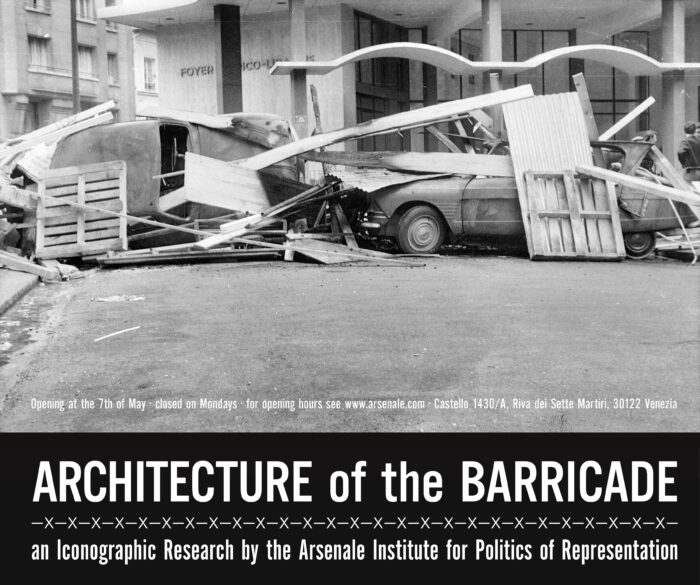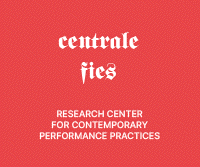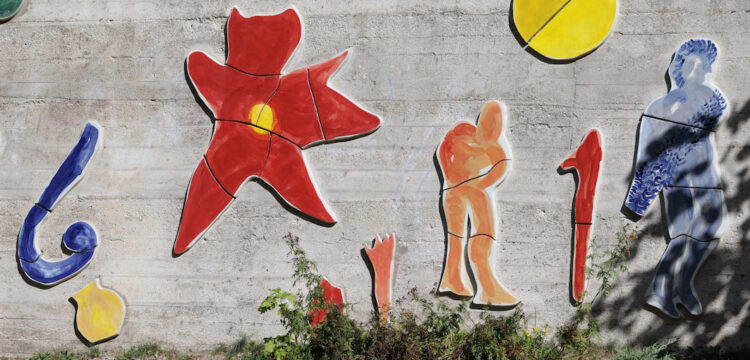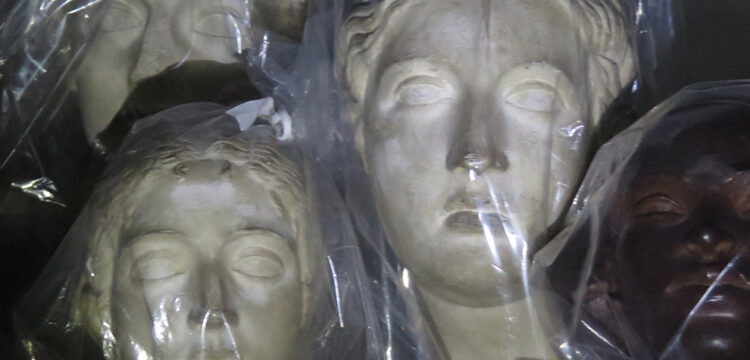Disturbing the Complacent
Voices of Albanian women in colonial and post-colonial Italy: a conversation with Endi Tupja
Based between Berlin and Tirana, Endi Tupja is an artist, filmmaker, and cultural practitioner, whose work experiments with strategies of memory recuperation, visuality and the subverted geomorphometry influencing identity and history. As one of the fellows selected for the eleventh edition of the LIVE WORKS Free School of Performance curated by Barbara Boninsegna and Simone Frangi, in 2022-2023 she spent several weeks at Centrale Fies (Trento), researching and developing a new performance piece titled Fascismo all’acqua di rose (All the missing caregivers).
Presented to the public on the occasion of the final three-day performance meeting LIVE WORKS Summit (30 June–2 July 2023), the work broadens her research further into performative writing and staging techniques of Albanian female voices in the Italian context oscillating between the 1930s, 1990s and the present. The artist uses the (de)spectacularization and disruptiveness of different interconnected and subjugated forms of southern Mediterranean areas to reflect on gender, proximity, travail and peripheral areas, thus fragmenting the space of Italian (post)imperial projections from within.
The following conversation deepens the content of this project and highlights some of the main lines of interest and methodologies that guide Tupja’s practice. She talks about writing and literature, stigmatizing narratives and power relations, the interconnections between care and violence, the difficulty of healing processes, and the need to acknowledge and remember one’s own feminist mothers as guides in the struggle for social justice.
Marta Federici: You studied Languages and cultural studies in Milan. How has that education background influenced your work as an artist?
Endi Tupja: I haven’t been so influenced by my studies, and I would rather refer to the journey towards becoming an artist as a process which has informed my practice significantly. My studies confirmed to me at every step that I was a creative person, but the part of doing something concrete about it was unexpected. You have to imagine me as a twenty year old woman, fond of literature and history, an avid reader, attracted to languages and poetry translation, raised in the aftermath of a severe dictatorship, in an educated family that loved and often spoiled me. In the second year of my BA I was asked by an Italian woman professor between classes if I had come to study in Italy after working as a prostitute—were you a prostitute before? This (and many other experiences) did not bring out the eagerness to express myself, but rather sank me deep in anxieties and inadequateness. Art and literature became my refuge, even more than during my high-school years in Tirana. So, the desire to become an artist was growing inside me but it took time, it was a slow process. Being an Albanian student in the early 2000’s was deeply distressing. I started admitting it, working on the damage and healing, much later in my life. That following phase, yes, has influenced my research for Fascismo all’Acqua di Rose (All The Missing Caregivers). At the same time, I would not even say that my studies have changed my relationship to literature and to words, which is where my artistic expression stems from. I came to Milan as an adult but words were already very deeply rooted in me, since age four. So I think the responsibility for that belongs to my family and my school years in Albania. My studies, which are inseparable from my experience as a migrant person, have helped to traumatise, enrich and develop some aspects of myself that are integral to my work.

In your practice you test the possibilities of what you call “performative writing”. I wanted to ask you if you could tell me more about how you see and explore the connection between these two poles: writing and performance, word and the body.
In terms of word and embodiment, I am fond of a paper written by Della Pollock in 1998, in which she tests the possibilities, even philosophically, of exploring what performative writing could be. The ways performative writing manifests are manifold, and without getting lost in an epistemological analysis I would like to cite a brief passage where she says that “Complexity can be the most generous offering, because it demands growth, challenges the expected, and disturbs the complacent.” Especially the latter came to be a sort of mantra in my approach to transition my writing into a performative gesture: disturbing the complacent! This is how I work in connecting the body to the word, and I think that they are strongly embedded in each other. I don’t see them as poles.

Can you elaborate more about what you mean when you say that body and word are embedded in each other?
I mean that, in terms of embodied cognition, the mind is connected and at the same time influenced by the body. What was put forward by Descartes about mind and body as separate dimensions has been later on been questioned by cognitive science, for which the very mechanisms of producing reason are the result of the textures of our embodiment. I refer here especially to Lakoff’s studies on the embodied language of metaphors, but also to the early works on embodied cognition forwarded by Heidegger and Merleau-Ponty.
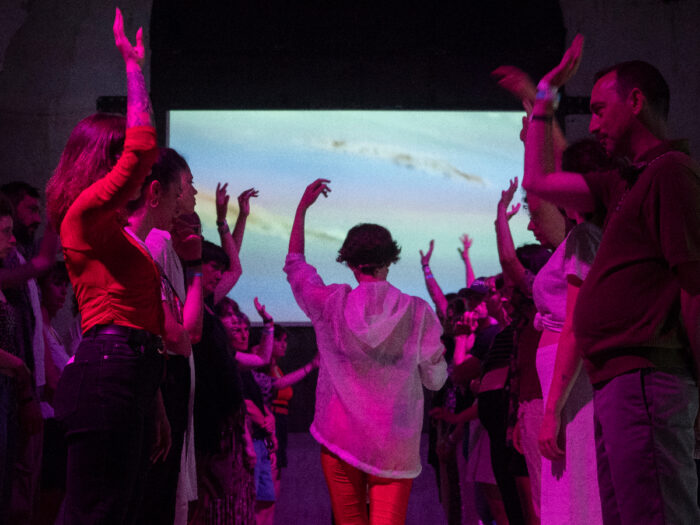
Your work and writing centers on experimenting with strategies of memory recuperation. In your process, how do private and collective accounts intersect, and how is the voice of the narrator framed?
It is easy to notice from my work that I am very upfront with my personal experience, if it resonates well with what I am researching. I am not afraid of being self-referential and I have done enough inner work, I think, not to counterfeit my biography for short-lived artistic gratification. But the exposure of the private is done for a collective effort, I would say that’s how the two dimensions intersect. One is the beginning and the other is a continuation. It’s similar to the notion of how the political, the private and the collective stand in relation to each other. They are always connected, in different equations and directions, but always interdependent. Who says that something can be purely aesthetic is simply lazy and too opportunistic to do the work.
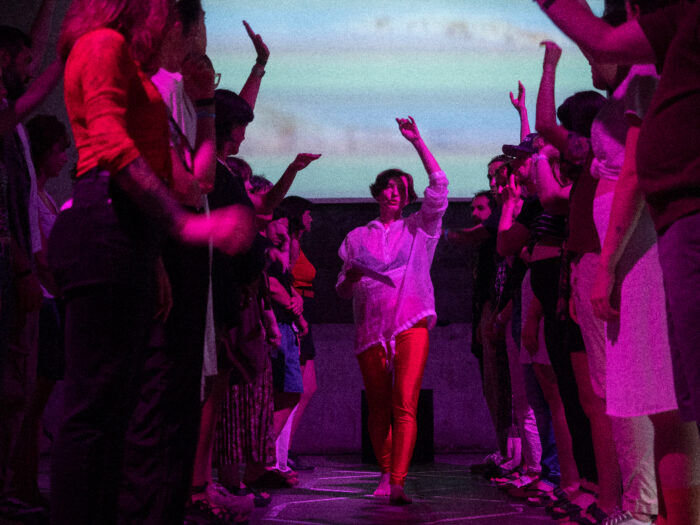
The performance you presented at LIVE WORKS, Fascismo all´Acqua di Rose (All the missing caregivers), develops a research on Albanian women in the Italian context, from the 1930s and up to present days. As suggested by the title, the work juxtaposes two stereotypes that show themselves as deeply interconnected: on the one hand, the myth of Italians as “good people,” which refers to the Italian typical attitude of self-indulgence and denial with respect to the country’s colonial past. On the other, the stereotypical representation of Albanian women, often associated with sex work in the imaginary of most Italian people and subject to violent processes of objectification—which brings us back to what you were saying before. By juxtaposing the two stereotypes you open up reflections on how dominant narratives are constructed through the use of commonplaces that nurture processes of historical removal and stigmatisation. Could you tell me more about how you address this kind of dynamics in this piece?
These dynamics you described are at the core of the distress and emotional trauma I am trying to process and release through the performance. I aimed to depict the truth I saw in what Della Pollock refers to as “disturbing the complacent”. This dynamic became the structure of my work, almost in a one to one mechanism: one sentence or movement gesture reflects a stereotype, and the next reflects the structure upholding it. It is important to create a high rhythm of contradictions by experimenting with different speeds, so as to somehow bridge the false gap between the stigmatising and the normalising narrative of the dominant power. This gap is a construct and it is carefully fabricated in order to maintain the power relations necessary for the narrative to remain unchanged.
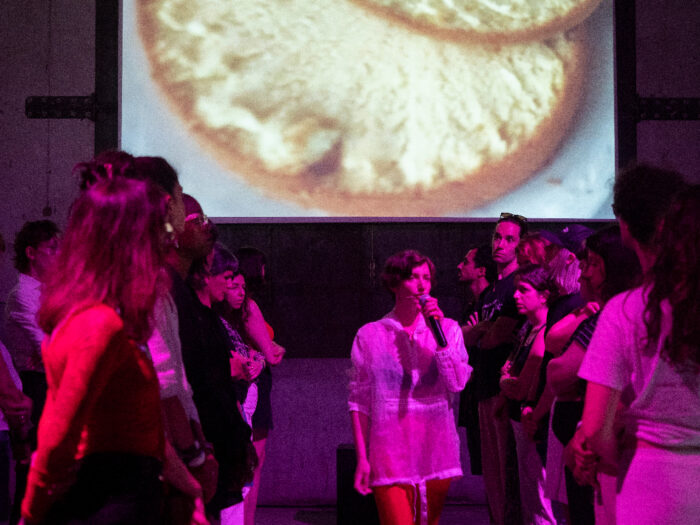
In the work you mention two women: Musine Kokalari and Adelina Alma Sejdini. Who are they and how did you encounter their stories?
It is hard for me to sum up their biographies because they are so complex and in a short paragraph I can only be reductive. Italians should educate themselves especially on the story of Adelina because it tells a great deal about them as a people and a society. Adelina Alma Sejdini was raped, kidnapped, tortured and sent to be a prostitute in Italy at the age of sixteen. She had forty men arrested between the Albanian and the Italian mafia and became an activist and advocate, reminding the Italian state of the risks of sex work and the distinction with forced prostitution, especially focusing on the illegal status of women. If they kept having no rights (permits) there could never be a real fight against sex trafficking. Her appeals for Italian citizenship fell in silence. She had an invalid status and was battling a third stage breast cancer when Italian authorities deemed righteous to give her a work permit. A work permit needs renewal and depends on reaching certain levels of income, which made it impossible for her to keep renewing it. Going back to Albania after more than twenty years and after denouncing her perpetrators, was not an option for Adelina. She committed suicide in Rome in November 2021. I insist that the Italian legal authorities are complicit in her death. Her life was crushed after courageous years of many battles. The rights of citizenship she had more than earned.
I was deeply affected by her death. All my experiences with the stigma of the prostitute and my life as a student made me realise how much the Italian society forced the projection of her life on mine. Power relations between Albania and Italy are very complex but are extremely banalised or ignored to the core of forgetfulness. And this has deep roots, some of which extend to the fascist project of imperial Italy under Mussolini. In my wish to connect her story to mechanisms of subjection, I was fascinated by Musine Kokalari, first published Albanian woman writer (both in Italian and Albanian), activist, founder of the Social Democratic Party with her brothers, and a strong opponent to Hoxha’s regime. She was a student of Albanian Literature in Rome from 1938 to 1942. Musine was later arrested by Hoxha and his regime and sentenced to twenty years of prison. Both of her brothers were executed without trial. After serving her prison sentence, they sent her to forced labour camps, where she became ill with breast cancer. She was denied treatment and died alone and destitute. Their encounter with the experience of migrating to Italy and the trauma of their lives, their deaths, their breast cancer, the presence of Musine in Rome as a student and Adelina’s fight against the institution in Rome, echoed so strongly that I decided to unite their biographies, and put mine in between. In addition, the diary of Musine in Rome helped me develop the structure of the text for the performance. She exquisitely analyses her feelings and state of being as a migrant person by capturing the fascist ideology of the time.
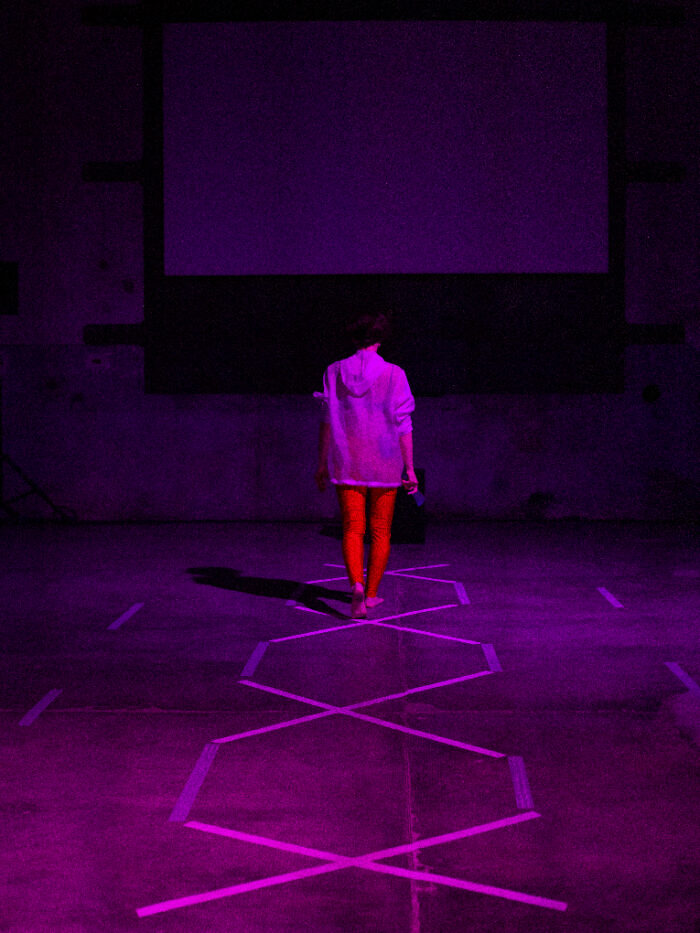
Can you tell me more about this text by Musine and how you use it?
I was impressed by the emotional intelligence she shows at such a young age, during her studies in Rome. In her interactions she is aware of being an outsider and does not mind fitting in. She was very secure about her identity and about her going back to Albania after her studies. The comparison with my experience was so strikingly different. Obviously because of the political conditions of the time-space we inhabited in Italy. Her Albania was a pre-dictatorship one. I realised that after the dictatorship I inherited the complete laceration of the Albanian society, which is something typical of what a dictatorship does to its people, because the violence is exercised by the mechanisms of power, but it also becomes the currency with which citizens relate to each other. Musine experienced many racist episodes, especially by her Italian boyfriend who was a fascist soldier in Abyssinia. He would continuously talk to her about Italian superiority and Italian technological primacy. But she was not impressed, she continued to do research on Albanian literature, gathering folk tales and analysing the text of folklore songs. I was, in contrast to her, much more keen in absorbing everything that was Italian culture. In this friction, my text developed much in relation to exposing how Italian-ness was embodied in me. I decided to read complete passages from her diary, giving the performance some suspended moments which were left in Italian, untranslated into English. Musine had a practical readiness in herself and seemed rarely bitter in her memoir. I, on the contrary, was very bitter, so I tried to search for these contrasts in myself and decided to change the gestuality and theatricality of my movements.
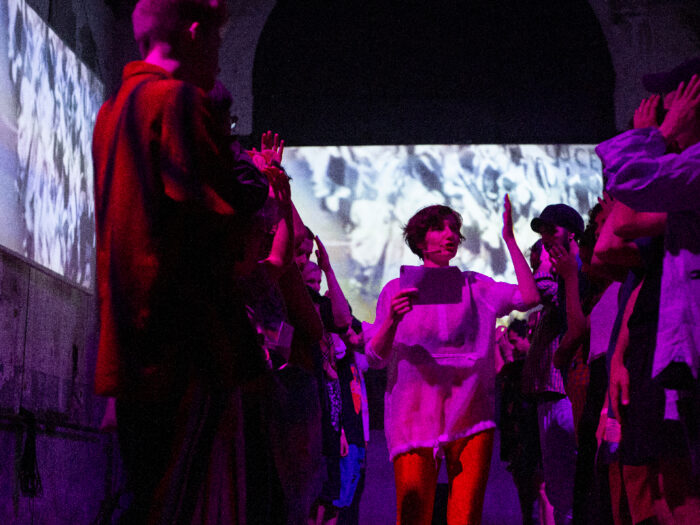
The title of the work directly brings up the question of care. As we know, in contemporary Italy, as well as in many other countries, much of the reproductive labour and care functions are carried out by marginalised and oppressed subjectivities, if we think not only about sex work, but also domestic or nursing work. Caregivers often find themselves working in precarious, underpaid or even dangerous conditions, putting their own bodies through exhaustion while nurturing those of other people. At the same time, I was also reflecting on the fact that the question of care has been a central theme in the artistic and cultural discourse in recent years, so much so that it has perhaps become an abused term in some way. In your performance you often address the audience to make sure that everyone is comfortable, and that the spectators/participants are enjoying themselves. But your gestures of care conflict with what is actually happening in the room and with other kinds of emotions generated by the narrative you develop. Can you comment on this?
Care, in queer feminist terms, is a radical definition opposing the structures of racist capitalism still profiting from colonial power relations, and stems from communities of BIPOC women and BIPOC LGBTIQ+ people. It has been abused because it has been hijacked and stolen by white institutions – institutions that keep existing in an unjust society that doesn’t want reparation, equality and democracy for all, even though they so vehemently pretend they do.
I put the term in the title because I wanted to ridicule it in relation to my attitude towards the audience. My interaction with them is polite but mostly authoritarian and at times playful. This was a clear choice, serving the mantra of “disturbing the complacent” audience members. Moreover, I thought that as the three biographies of Musine, Adelina and myself come together, a gesture of care is involved in telling and carrying their memory forward. But also, my putting my body and my psyche at service in a very vulnerable way, is in a way a gesture of giving back to these women who endured much more excruciating painful experiences compared to mine.
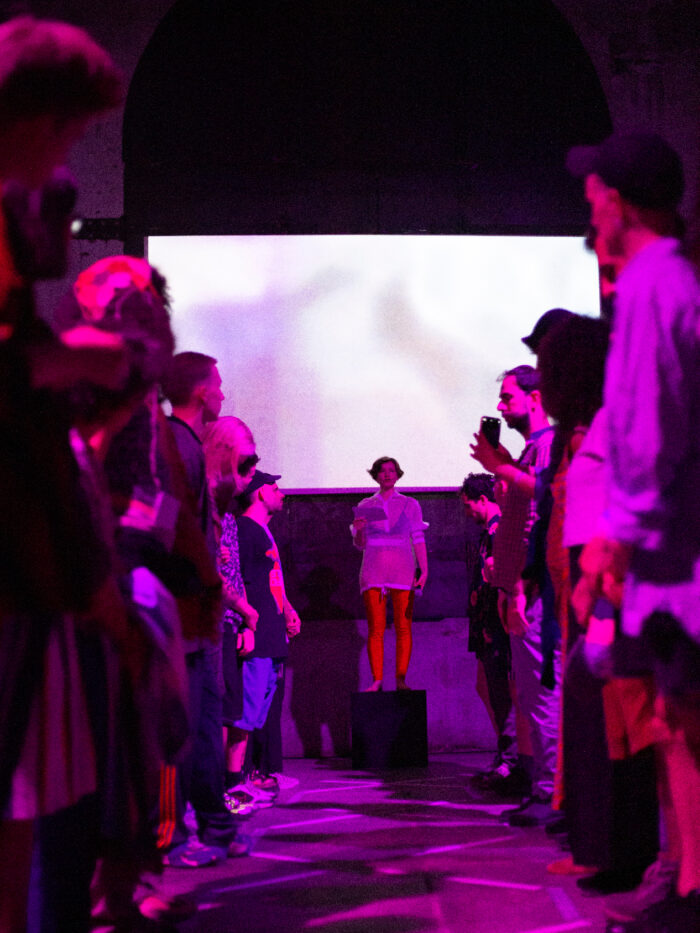
I was thinking that the female condition is also addressed by other works of yours, such as hard-boiled, contained, evaporated! (2021-2023), which deals with the material and historical implications of menstrual care in communist Albania. I wanted to ask you if you call yourself a feminist. If yes, what is your lineage of feminist mothers?
I was and still am uncomfortable with the term feminist because in Albania the feminist consciousness in Western terms manifested late in society, when I was already away as an immigrant. I have grown up with feminism since my childhood. I believe every woman does, in spite of how it is named or the literature and research behind it. So yes, I am one. I learned to raise my voice since I was very young, because the early 1990s in Albania were a very difficult time for a girl in her puberty. The political chaos and the so-called freedom from the dictatorship came in a vacuum of gender and sexual knowledge, in the context of a society where women are seen as objects of men. But this is equally true for the pseudo-developed, progressive Milan, where oppression has acquired certain makeup mechanisms that give it a flattering positive image, but at its core so much misogyny flourishes. In both my immigrant experiences in Italy and Germany, I never connected with university feminist groups or other types of groups. Mostly because my story was not heard, I was not given the space to tell it, nor had anyone really interested in it and this was very hurtful. All these white western feminists being so radically lefty, they didn’t realise the gap between their three generations of mothers growing up in privileged economies and social security states, and my three generations of mothers forced to develop different forms of survival. Wealth is also concrete in its possibility, not only in accumulated assets. The possibility to access is a privilege that over the generations becomes part of one’s DNA, and such kinds of wealth in the West are a result of forms of colonial oppressions, or in the case of Eastern Europe of centuries of submission and enslaving labor relations. I believe there is no real class debate in the feminist movement in the West, and consequently also none about the oppression of being impoverished and disenfranchised. And this is of course connected to so many aspects about feminist struggles especially when it comes to migrant lives. So, my lineage of feminist mothers starts with my mother and her mother, very proud strong women who endured a heavy, brutal patriarchal, oppressive dictatorship. Their reality was very specific. The Western feminists cannot be pleased with themselves because they know feminism in Ex-Yugoslavia or feminism in Poland. Nothing can be flattened, every story is specific in its own evolving conditions. I am not suggesting that there is no possibility of connection, there are many. I am opening myself now but for years I was isolated in my feminism, and there was no openness on the other side. Actually there still isn’t any.
Shote Galica is the earliest memory of a feminist Albanian woman I have. She was an Albanian Kosovar insurgent, fighter and commander who formed a guerrilla force (Kaçak) with her husband to reclaim the territories of northern Albania against the Serbs and the Kingdom of Yugoslavia, in the aftermath of the collapse of the Ottoman Empire and World War I. I was obsessed with her in elementary school and used to pronounce her name in the mirror and train my fighter voice while trying on my mothers heels and make-up. My mother, her mother, Shote Galica, Musine and Adelina are my feminist mothers. There are other international mothers too, whom I got to know through literature and art, but our relationship is understandably more intellectual.
Going back to the performance, I wanted to ask you a couple of more questions about its structure. I was particularly impressed with the participatory format, which implies the active involvement of the audience. Have you used this kind of configuration before? Why this choice?
I had presented previously a performative version of another work of mine titled Iconographies of Belonging in 2022 at Fluctoplasma arts festival, in Hamburg. In that case it was more something in between a sound installation and my voice delivering live the same text as a voiceover of the sound piece. The audience arrived having no expectations of what would happen and I could experiment live with them, but for Centrale Fies I had to try another format. In the first place, because the audience had expectations in this case, and entered the space with the awareness of seeing a performance. It was a more difficult setting also because Centrale Fies is in Italy and there was a predominantly Italian audience. I wanted to create a feeling of unease and the opposite of the spectacle, even though I was being watched. The idea of oscillating constantly between the generosity of welcoming someone and giving orders seemed suitable and appeased my growing anxiety about how to tell the story of Adelina and Musine. I am aware that disruption can lead the audience to reflect, but performance art remains above all a theatrical gesture dealing with the gaze. This is inevitable, and that’s why I tried to entertain with the purpose of dis-entertaining. The sense of ridicule and grotesque combined with the heaviness of the text, generated for me a sense of helplessness. No one gets anything. There is no justice for Adelina and Musine that can ever be done. It is too late and they are too deceased for that. The only way to give back is to carry the memory and infuse it in the collectivity.
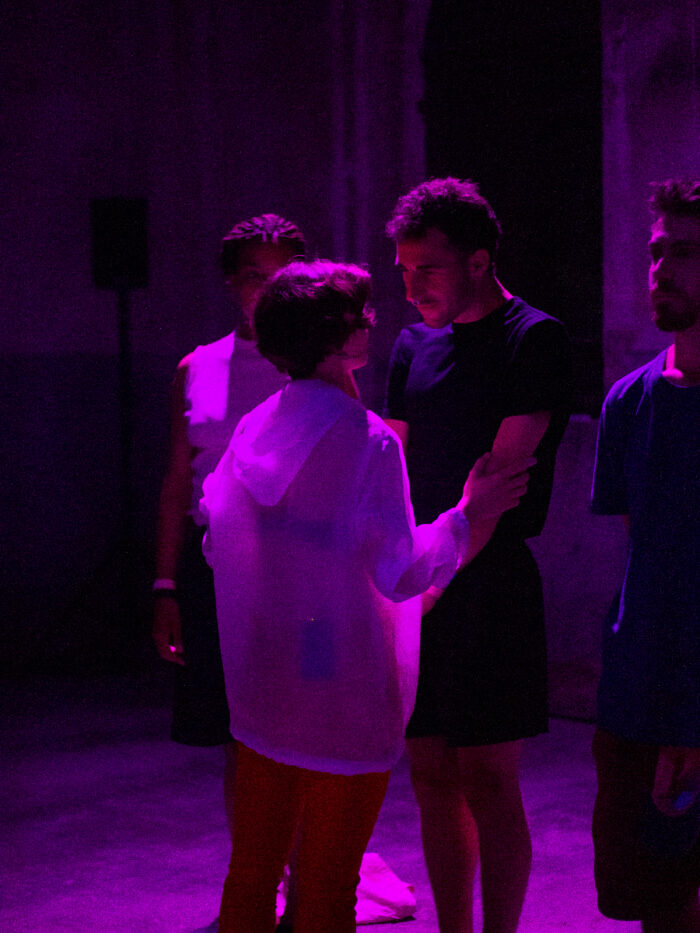
During the performance, the space where you move and where the audience is standing is framed by two large video projections, in which archival images from the Fascist period alternate with shooting with priests and nuns, and kitchen scenes, like the ones one would see in commercials or TV shows for housewives. Could you tell me more about the use of images in your work? I also wanted to ask you how you approach the archive as a space for research?
The video projections are an assemblage of forms of Italian-ness that I encountered since childhood, related to the dogma of Italian superiority. They are an homage to the Italian TV culture which is so dominant, in the context of which Albanian subjectivities have been objectified and used for the purpose of the rhetoric of the good Albanian vs the bad Albanian. The paradigm of Italian national identity in its coveted culinary culture, embedded in pseudo christian prissiness, is put in contrast with the colonial crimes committed by the Italian State. This is a strategy to evoke sensations through the archive. The archival image is not retraced in its accuracy, but on the other hand the research within the space of the archive is constantly present in my work and is a process that goes through pain, anger and grief. I think the encounter with the archive should be dealt with in ways that allow the artists (with a support community or in collective ways) to come together and work through it while preserving the vernacularity surrounding art work production.
I know that you intend to continue the research you began with this work, particularly in relation to the figure of Adelina Alma Sejdini. What will be your next steps?
I intend to research further into the colonial relations between Italy and Albania, both in archival and found footage. The city of Rome will be of central interest in the process of mapping the trajectories tracing Adelina’s and Musine’s presence there. The effort of unraveling the web of entanglements between Albania and Italy necessitates many years. But usually this is how I work, as it was the case for Hard-Boiled, Contained, Evaporated, which became first an experimental video/sonic story and later a three channel video installation. I like to focus on one extensive research and have some other smaller projects in between.


